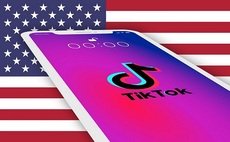The EC explains why the move will not limit competition within the EEA
The EU has approved Oracle's acquisition of Sun The EU has given its unconditional approval for Oracle's acquisition of enterprise hardware vendor and Java-guardian Sun. The transaction has n...
To continue reading this article...
Join Computing
- Unlimited access to real-time news, analysis and opinion from the technology industry
- Receive important and breaking news in our daily newsletter
- Be the first to hear about our events and awards programmes
- Join live member only interviews with IT leaders at the ‘IT Lounge’; your chance to ask your burning tech questions and have them answered
- Access to the Computing Delta hub providing market intelligence and research
- Receive our members-only newsletter with exclusive opinion pieces from senior IT Leaders





















